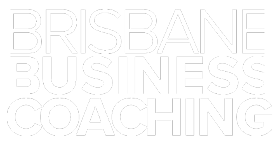Business coaches of 2025 are pushing owners to move online so they can capture more customers, streamline operations, and stay competitive in a digital-first economy.
We've worked with many local brands that resist this change and risk falling behind competitors who've already adapted their marketing, operations, and customer service. They don't realise how much revenue they're losing until a tech-savvy competitor swoops in and takes their clients.
But you don't have to be one of them.
In this article, we'll share exactly why business digitalisation is important and how coaching speeds up the process. You'll learn:
Stay with us to know how you can future-proof your business and stay ahead of the competition.
The shift to digital is already here, and companies that haven't adapted are watching their competitors pull ahead. Right now, most people search online before they buy anything, whether it's a tradie, an accountant, or a local cafe. So companies without an online presence are losing the chance to connect with customers who are actively looking for their services.
Here's what you need to understand about this change and how it impacts a business:
Digital transformation means updating how your company operates, markets itself, and serves customers using modern technology. When businesses avoid going digital, they lose ground to competitors who show up first on Google and provide better customer experiences.
The modern marketplace rewards brands that meet people where they already are: on their phones, laptops, and tablets. If you're not there, someone else is taking that sale.
For example, a plumbing company that still relies on Yellow Pages ads and phone calls will lose customers to a competitor with online booking, Google reviews, and fast email responses. The gap widens every month.
In 2025, customers expect instant responses, online booking systems, and personalised services with the presence of digital technologies. Things are moving fast, and businesses without a solid online presence struggle to keep up with customer expectations.
That's why you need to update your marketing and sales process now. What we recommend, let’s focus on getting your brand found online, automating repetitive tasks, and using tools that track what's working. It’s because these strategic actions directly impact your profit and help your management team make better decisions about where to invest time and resources.
Now that you can see why digital adoption is unavoidable, let's examine the specific obstacles holding most owners back from making this transition.

Many small business owners struggle with these three main roadblocks: lack of technical know-how, tight budgets and time constraints, and no clear plan to follow through on digital changes.
Learn how to identify and overcome each of these obstacles to move forward:
We've seen many local Brisbane business owners freeze up when it comes to technology. They lack the confidence to use complex digital technologies and feel like they're falling behind every day. That's pretty normal considering most people started their companies based on trade skills or industry expertise, not IT knowledge.
However, the skill gap isn't permanent, and business coaching helps owners overcome these fears faster than trying to figure it out alone. The right guidance breaks down confusing tech into simple steps.
If you manage a small team with limited resources, you know how hard it is to find the time and money for digital upgrades. Every dollar counts, and spending hours learning new software feels impossible when you're already working 60-hour weeks.
That's where a business consultant can help you create a realistic plan that fits the budget and schedule. They'll show which digital tools deliver the fastest results for company growth, so you're not wasting money on things that don't move the needle.
Useful tip: Discuss your main time drains with the consultant so they can recommend tools that actually free up hours.
A professional coach gives the owners the outside push and accountability they need to get things done.
Here's how they bring strategy and keep you on track:
What's more, they make the whole process less painful by celebrating small wins along the way. So you get to feel good about progress instead of drowning in a sea of spreadsheets and software tutorials that all look the same.
Want to know which digital moves grow your brand instead of just adding more tasks to your plate? Well, the answer comes down to focusing on automation and customer experience. These two areas deliver the fastest returns because they free up your time while making customers happier at the same time.
In this section, we're going to cover specific tools and strategies a coach uses to give you a competitive advantage.
Good business coaching helps clients set goals by using digital tools to track their growth precisely. For example, they might suggest tools like Xero for accounting and HubSpot for customer management. These platforms offer features that save hours every week by handling tasks that used to require manual input.
The goal is pretty simple: to change manual processes into efficient digital workflows that work better. When you automate invoicing, appointment reminders, and follow-up emails, your team gets more time to focus on things that increase sales and profits.
Helpful Tip: Start by automating the most repetitive weekly task first, then build from there once you see the time savings.

Your coach lets you see exactly where customers get frustrated or confused in their journey with your business. Their recommended technology fixes these gaps and creates smoother interactions that keep people coming back.
For maximising customer satisfaction, focus on these two areas with the right advice and tools:
The right customer support systems help frustrated clients become loyal fans who refer others to your brand. So your marketing strategy should focus on making every touchpoint feel professional and personal. When the team spends less time on admin work, they can focus on higher-value activities like building relationships and closing deals.
A remote model lets any service hire talent from anywhere and reduces office costs. The employees get the freedom to work from anywhere, which means they're not tied to a physical location when opportunities come up.
This flexibility helps the service respond to customer needs instantly and adapt to market changes faster than operations stuck in traditional office setups.
If your company wants something similar, an advisor will suggest cloud-based digital solutions like Google Workspace and Slack to get you started without the headaches.
Once you get these solutions in place, it's time to look at how a business consultant future-proofs your growth for the long haul.
The difference between short-term wins and long-term success comes down to having someone who keeps you accountable and focused on the larger picture while you handle daily operations.
Let's explore how a consultant protects your investment and sets you up for sustainable growth:
Digital projects often drift or fall by the wayside when daily operations take over. The most significant factor separating successful initiatives from failures is external accountability and focus. And to maintain focus on your long-term vision, the consultant provides an external, professional view.
Here's how they ensure you stay accountable and focused:
Fun Fact: Most owners admit they've paid for software subscriptions they forgot about for over six months before cancelling them.

Based on your budget, team size, and industry, a consultant will recommend the right management systems that actually fit your workflow. There's no need to buy the fanciest tool if a simpler one does the job just as well and costs half the price.
So the consultant specifically matches tools to your actual needs, like choosing email automation for lead nurturing or project management software for team coordination. This strategic approach means you're investing in technology that scales with the business and supports real growth.
Every dollar spent on technology should come back to the business with a solid return. Otherwise, you're just collecting expensive digital clutter that nobody uses.
A consultant guarantees you're not throwing money at tools that sit unused or don't deliver value. They help track ROI, measure what's working, and adjust your strategy to focus on the tactics that increase profit and boost sales.
We recommend treating digital investments like any other business decision: test small, measure results, then scale what works. If something doesn't deliver after a fair trial period, you'll still have protected most of your budget for the next opportunity.
Many small business owners feel overwhelmed by technology choices, waste money on tools they never use, and watch opportunities slip away to competitors who adapt faster. But with the right coach guiding your decisions, you can avoid these mistakes and see better results.
We've covered why digitalisation is mandatory, the obstacles holding you back, quick-win solutions, and how coaching protects your investment. Now you know the exact steps to take and who can help you execute them.
Your competitors are already online, and customers expect digital convenience from every brand they interact with.
Visit Brisbane Business Coaching to connect with experienced coaches who help local companies modernise without the usual tech headaches and wasted budget.

Copyright 2020-2026 © Matter Solutions Pty Ltd